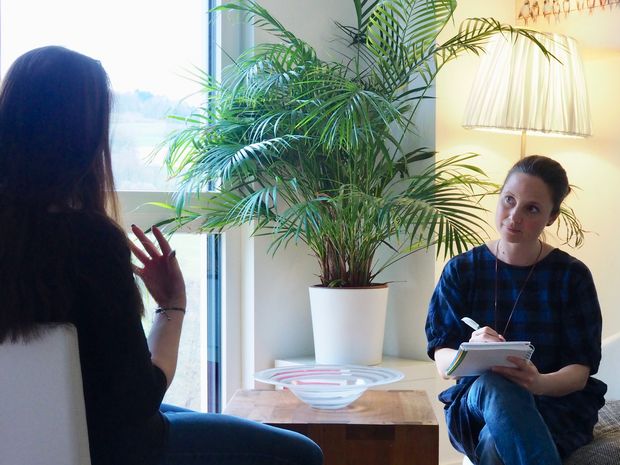Our psychologists talk about managing these times of isolation during the Coronavirus pandemic.

The Student Psychological Counseling Service is making every effort provide assistance to students and help them get through this difficult time. Office staff is currently working from home and calls are being diverted from the campus office to employees’ mobile phones. Zoom is also an option to have an online counseling or therapy session.
There is, however, a lot you can do to cope well mentally during this time. The psychologists at the student counseling office have put together a summary for JKU employees and students.
At the moment, most students and employees at Austrian universities are sheltering-in-place at home. The measures currently in force to prevent the exponential spread of the Coronavirus can psychologically affect one’s well-being. We would like to provide some suggestions to help you get through and weather these unprecedented times.
1. Proven Skills Help Master New Situations
Take advantage of your existing resources and ask yourself: "What has worked well for me so far? What kinds of activities help me to relax? What challenging situations have I mastered so far and what kinds of skills have helped me? What is the best time of day for me to study? How many hours a day can I concentrate and focus on working? Would I rather study alone or in a group? How can I create a virtual study/working group and make it work? How can I best motivate myself? What has worked so far when it comes to taking breaks? What tips and advice would I have for colleagues and classmates if they were sitting alone at home and having difficulties organizing their day? What would my colleagues or classmates say is one of my strengths that could help me through this time?
2. A Good Overview Provides Direction and Counteracts Feelings of Helplessness
JKU students are more likely to be worrying about financial security at the moment. Right now, many students are not sure how everything will continue during this semester, what exams they can take and which courses they can finish. Many students have also recently lost their part-time jobs and now face the question of how to continue financially supporting themselves. A first step is to get an overview of your financial situation and check out potential financial support options, such as the JKU Austrian Student Union’s social fund, etc. Maybe you can find new sources of income, such as a harvest worker (www.dielebensmittelhelfer.at) or doing civil/community service. Use this method to also get an overview of everything you have to study in lieu of the current situation. Find out about your subject areas and what can be completed when. Think about studying for the subjects you can take exams for despite the uncertainties. Once you have an idea, decide how many hours per week you need to spend working and how many you need to spend studying. Write the plan down. Perhaps you can also organize study groups via video chat. Studying together also provides structure, is more fun, and can often positively affect the studying process.
3. Positive Activities Counteract Stress
Also think about how much time you want to spend doing things you enjoy. It has been scientifically proven that regular exercise and social time (via video chat) have a very positive effect on our psyche and you should plan these activities as part of your week.
4. Targeted Facts Help Against Emerging Fears
Make a conscious decision regarding your media sources of information and how much time you want to spend each day getting your news and information. Which newspapers do you want to read, what news programs do you want to watch? Clear facts and serious information provide direction and a sense of security. Plan these into your daily routine and avoid monitoring the news continually.
5. Routines Provide Stability and Security
Try sticking to your normal routine of sleeping, eating and studying as much as you can. If you are used to getting up, brushing your teeth, and getting dressed in the morning, continue doing so. A thought-out meal plan will help you eat well, even if the Mensa is closed and will also help avoid unnecessary trips to the supermarket.
6. Scope Helps to Implement Plans
Overambitious goals can quickly lead to being unable to stick to your weekly schedule and "throwing everything out of the window". This is frustrating and counteracts the positive aspects of having a weekly schedule. You can avoid this by planning a third more time for each subject area you have to study for - or office work that has to be done - than you would probably need. In addition, it may be helpful to take unexpected time into account time to factor in unforeseen events, such as calls from friends, oversleeping, procrastinating, etc.
If necessary, you can contact the Student Psychological Counseling Service Linz for professional help by phone or online. Call 0732 2468 7930 for appointments for phone or online sessions via zoom.us. We are available Monday to Thursday between 7.30 am - 3.30 pm and Friday between 7.30 am – 1.30 pm.
Additional crisis hotlines in Upper Austria:
Upper Austrian Crisis Aid (24h) 0732 21 77
Pastoral Advice Services (24h) 142
Ö3 Telephone Counseling Service (12-24 Uhr) 116 123
Victim Emergency Call (24h) 0800 112 112
Women's Helpline (24h) 0800 222 555
Men's Emergency Line (24h) 0800 246 247
Helpline by the Professional Association of Austrian Psychologists (extended hours: Mon-Thu 9 a.m. to 4 p.m.) 01 504 8000
Healthcare consultation by phone (24h) 1450
AGES Coronavirus hotline (24h) 0800 555 621








